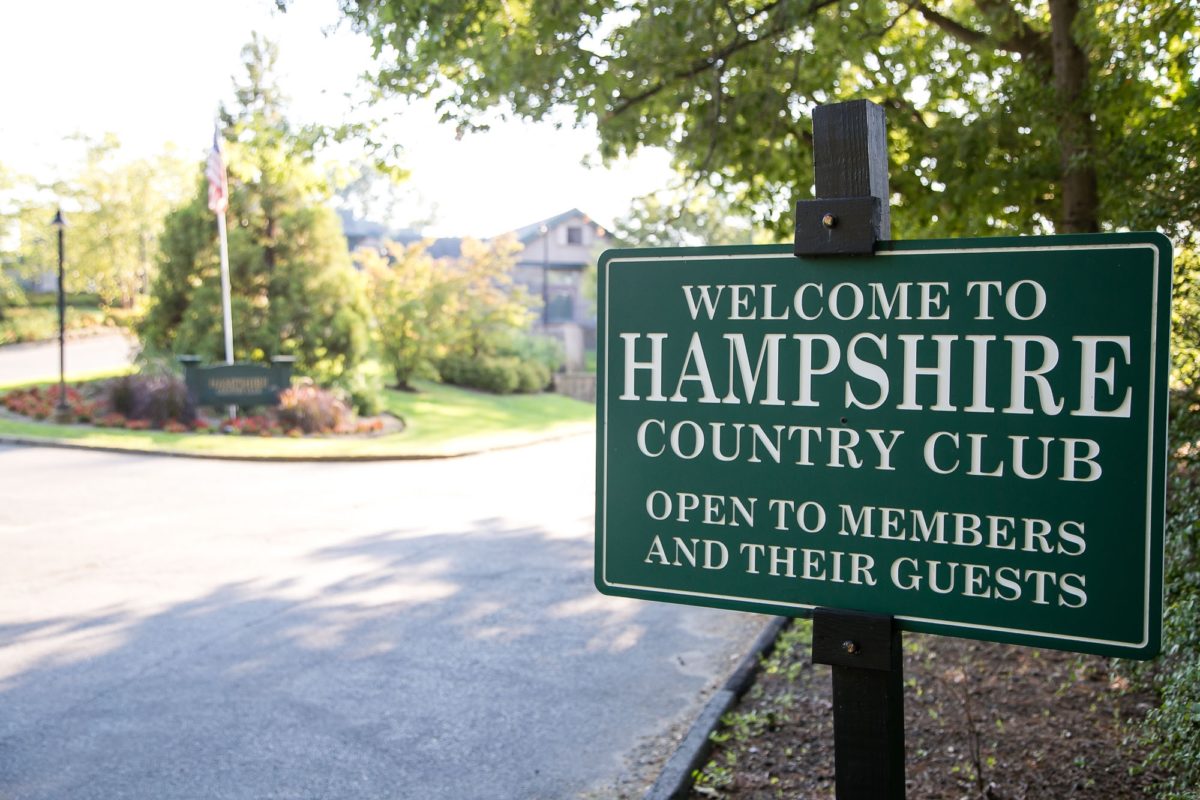Hampshire Recreation claims Mamaroneck is ‘taking’ its property, in $58M lawsuit
Hampshire Recreation is demanding $58.1 million from the village of Mamaroneck for allegedly blocking all attempts to convert the Hampshire Country Club to a residential development.
 By refusing to allow any housing, Hampshire Recreation claims in a May 6 lawsuit filed in Westchester Supreme Court, the village has in effect taken the property.
By refusing to allow any housing, Hampshire Recreation claims in a May 6 lawsuit filed in Westchester Supreme Court, the village has in effect taken the property.
“The planning board was never going to provide Hampshire a fair and good faith opportunity to establish its ability to introduce a residential use at the site,” the lawsuit states. “The planning board”™s actions are not legitimate governmental regulation, destroy all but a bare residue value of the club property, and thus constitute a regulatory taking for which Hampshire must be justly compensated.”
“We wish they would stop resorting to litigation when they don”™t get what they want,” Mamaroneck Mayor Thomas Murphy said in a brief telephone interview.
“They filed an application for a very, very large project. After much due process and careful deliberation the planning board decided it was not ecologically viable for our community.”
The 106-acre property is in the wealthy Orienta section of the village near the Long Island Sound and has operated as a golf club since 1928.
The previous owner ceased operating the club in 2008 and put the property up for sale. Hampshire Recreation bought the site in 2010 for $12 million, with the intention of creating housing and in the belief that golf clubs are no longer economically viable.
The current zoning allows houses on 20,000-square-foot lots. Hampshire Recreation proposed zoning that would allow a 5-story, 125-unit condominium. The village rejected the plan.
Then Hampshire proposed a planned residential development that would enable it to cluster housing in one place and preserve the rest of the property. The plan included 105 housing units ”“ 44 houses and 61 carriage homes ”“ a 9-hole golf course, and 31 acres for public use.
The planning board evaluated voluminous environmental studies and held public hearings. It required Hampshire to consider as few as 25 to 75 housing units. In all, the complaint states, the board evaluated 16 alternatives for the property.
After nearly five years of deliberations, the planning board denied Hampshire several land-use permits, finding that the proposed development would impact the environment significantly.
Hampshire petitioned Westchester Supreme Court last June to overturn the village’s denial of land-use permits for the proposed development. That case is pending.
The new lawsuit mirrors the same facts and allegations. Hampshire argues that the positions taken by the village would apply to any residential development, no matter how it was designed.
In effect, the complaint states, the village has rezoned the property without enacting legislation, and determined that the site “shall remain a recreational club ”¦ in perpetuity.”
Village Attorney Robert Spolzino said Hampshire has misconstrued the planning board decision.
Hampshire Recreation took the position that lower-density alternatives were not financially viable, he said, but did not provide financial analysis to support that conclusion. So the board did not decide the viability of less dense housing.
If fully developed for housing under the current zoning, Hampshire claims, the property is worth at least $63.5 million.
“The village has received a windfall entirely at Hampshire”™s expense,” the complaint states, “by keeping the club property as a recreational use without having to even buy the site.”
Hampshire is represented by White Plains attorneys David J. Cooper and Matthew J. Acocella.